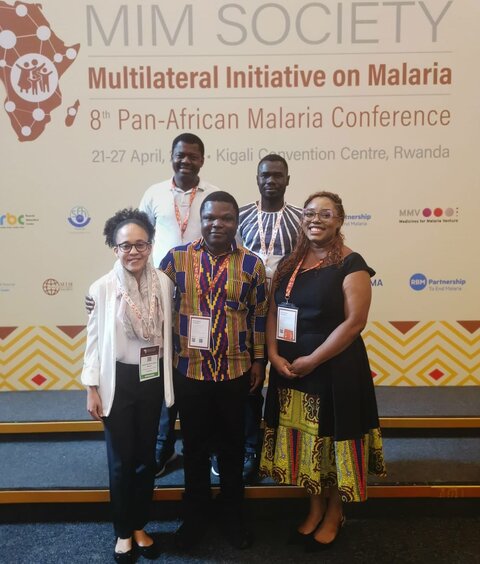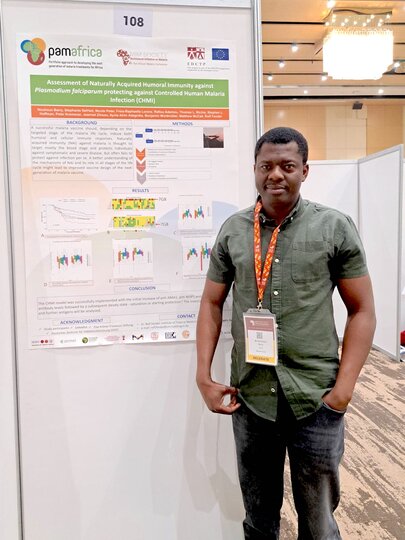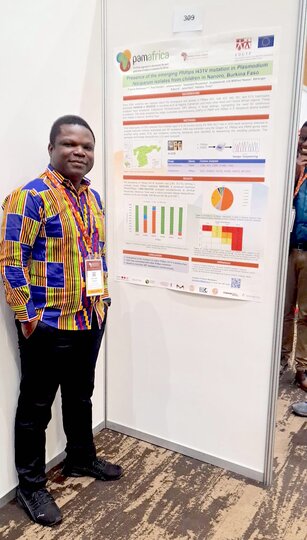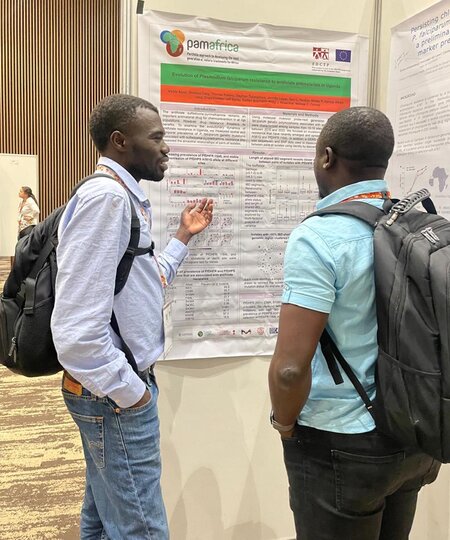Recap: PAMAfrica-SINDOFO capacity building symposium at MIM 2024
Following a successful joint symposium at the 11th EDCTP Forum, the PAMAfrica and SINDOFO consortia hosted a capacity strengthening symposium at this year’s MIM Society Conference in Kigali, Rwanda.
Titled ‘Transformative partnerships: investing and innovating in local and gender-balanced leadership for the next generation of African leaders in Malaria R&D’, the symposium explored how the two consortia are striving to build equitable partnerships and have integrated capacity building into their clinical trials, and what that means for both present and future African scientists contributing to the malaria elimination agenda and delivering better health outcomes to the people bearing the burden of the disease.
After an introduction by the symposium co-chairs – Teresa Machai Macete (Fundaçao Manhiça, Mozambique) and Dr Joseph Okebe (Merck, Switzerland) – Medicines for Malaria Venture’s (MMV) Alice Neequaye presented on the topic of equitable partnerships as a tool for improved malaria control and elimination, discussing the key elements that contribute to successful partnerships and the vision for innovation in African R&D these partnerships aim to achieve. This was followed by a presentation from MMV’s Dr Helen Demarest discussing the power of the PAMAfrica and SINDOFO consortia in partnering to enable not only higher education, but also to develop fundamental technical and research skills at the grassroots level. Through recognition of the importance of professional and technical skills of entire research teams, as well as academic progression of talented individuals, both consortia have empowered emerging African researchers to take leadership roles and support the development of a more robust and sustainable clinical research ecosystem on the continent.
In the symposium’s final presentation, Dr Jéssica Dalsuco (Fundaçao Manhiça, Mozambique) and Dr Dearie Glory Okwu (CERMEL, Gabon) discussed the challenges and opportunities for African women in science, reflecting on their personal experiences as leaders in the SINDOFO and PAMAfrica clinical trial settings and SINDOFO PhD students. Indeed, the two scientists serve as great examples of the shift towards a more gender-balanced leadership in African malaria R&D, but they also pointed to the barriers women still face, offering perspectives on facilitating access and opportunities for more women to grow into leadership positions.

A panel discussion followed the symposium presentations, featuring PAMAfrica scholarship PhD students Francis Bohissou, Victor Asua and Nouhoun Barry, as well as Drs Dalsuco and Okwu. The panelists engaged in discussions on both the challenges and opportunities they have individually experienced as young researchers, and ultimately opened up the discussion to the audience members. These discussions revolved around topics like data sharing and the importance of facilitating networking opportunities for young scientists and encouraging mutual support within the community.
Beyond taking part in the symposium’s panel discussion, Francis Bohissou, Victor Asua and Nouhoun Barry each made poster presentations at MIM, sharing their research with colleagues and connecting with the global malaria R&D community.


